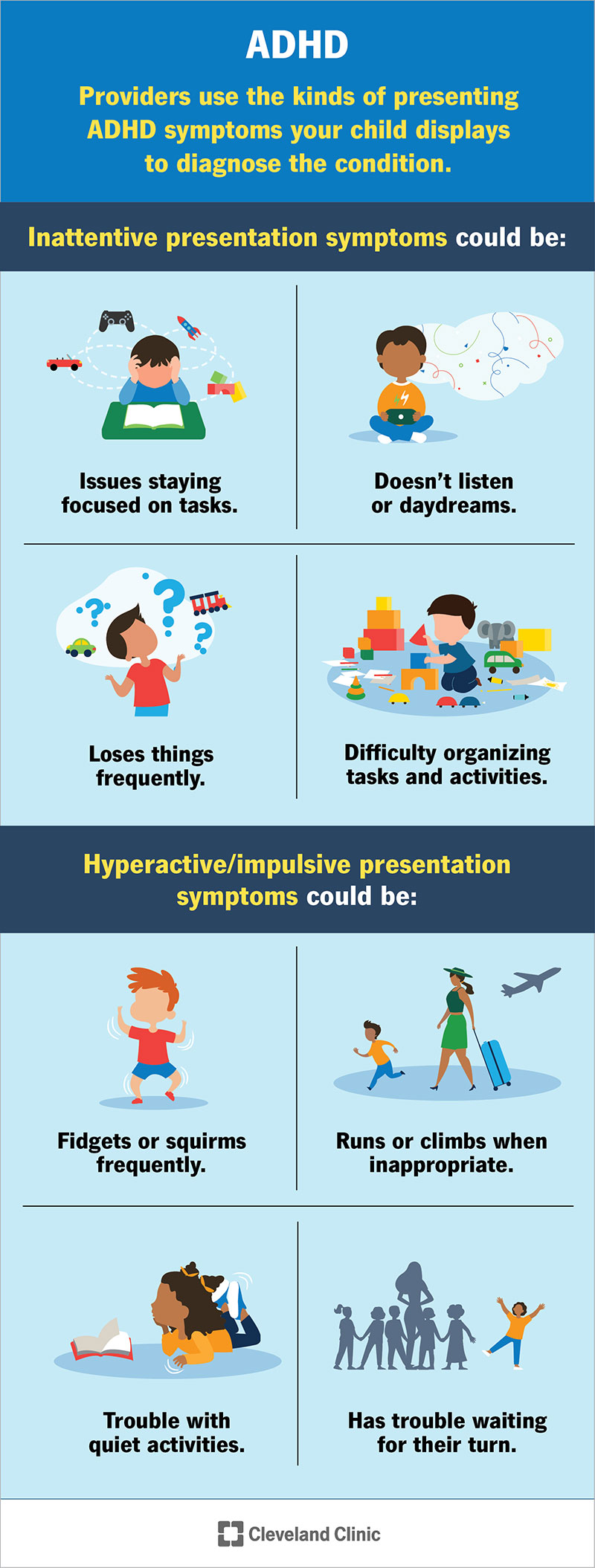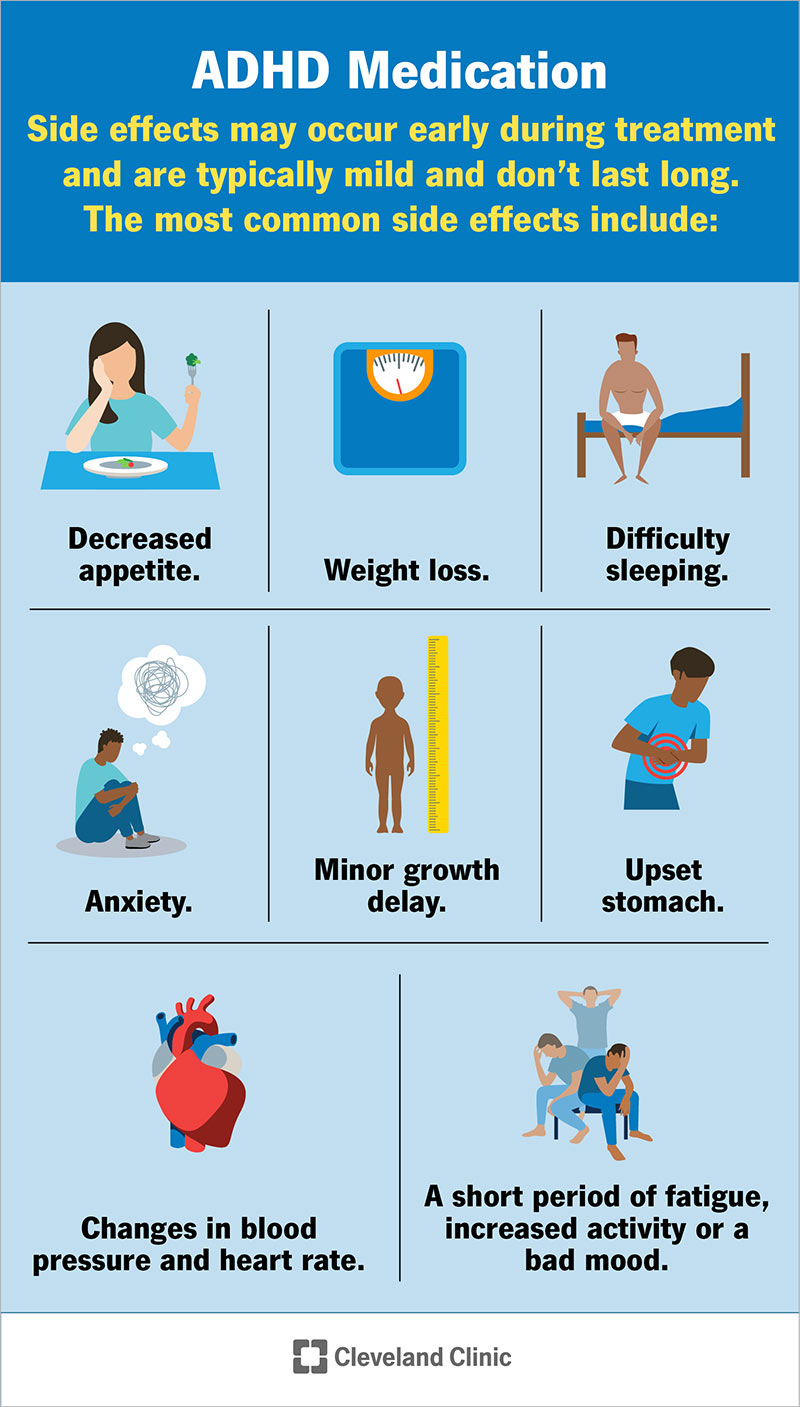Medication Management Programs for Effective Treatment Plans
Medication Management Programs for Effective Treatment Plans
Blog Article
Exploring Effective ADHD Therapy Alternatives for All Ages
The intricacies of Attention deficit disorder (ADHD) existing special obstacles throughout different age groups, requiring a thorough expedition of efficient therapy options. A combination of behavior therapies, medicinal treatments, and way of living adjustments has actually shown pledge in dealing with the varied needs of individuals with ADHD. The efficacy of these techniques can differ considerably based on individual situations, raising important questions regarding customized techniques. As we take a look at the spectrum of therapy techniques available, it comes to be vital to consider not just their immediate impacts yet also their long-lasting implications for individuals and family members.
Recognizing ADHD and Its Effect
Attention-Deficit/Hyperactivity Condition (ADHD) is a neurodevelopmental condition identified by relentless patterns of inattention, hyperactivity, and impulsivity that can dramatically impact various facets of an individual's life. It normally shows up in childhood years, although signs and symptoms can persist right into the adult years. The core signs of ADHD can interfere with instructional performance, impede social communications, and complicate occupational ventures.
Individuals with ADHD commonly battle with maintaining concentrate on jobs, organizing tasks, and complying with via on guidelines, which can cause scholastic underachievement (Depression Treatment). In social contexts, impulsivity might lead to problems in developing and sustaining connections, as people may disrupt conversations or make rash choices without considering effects
Furthermore, ADHD can co-occur with various other mental health problems, such as anxiousness and depression, even more making complex medical diagnosis and treatment. The variability in sign discussion implies that ADHD can influence individuals in different ways, necessitating a tailored method to monitoring. Understanding ADHD's diverse impact is vital for creating efficient approaches that support people in browsing day-to-day difficulties and attaining their possibility. Comprehensive awareness of ADHD's nature and implications prepares for checking out ideal therapy options tailored to every individual's requirements.
Behavioral Therapies for ADHD
Many behavioral treatments have actually been established to properly deal with the obstacles associated with ADHD, concentrating on customizing particular actions and fostering vital skills. Among the most recognized approaches are cognitive-behavioral therapy (CBT), moms and dad training, and social abilities training.
CBT aids people recognize and transform adverse idea patterns and actions, advertising an extra positive outlook and boosted self-regulation. This therapy often includes functional techniques for managing impulsivity and boosting company. Parent training programs empower caregivers by outfitting them with methods to strengthen positive actions and set consistent borders, which can be particularly useful for youngsters with ADHD.
Social skills training is an additional important part, teaching people with ADHD how to engage effectively with peers - Depression Treatment. This technique frequently entails role-playing and feedback to improve interaction, collaboration, and problem resolution skills
Integrating these behavioral therapies right into an extensive therapy strategy can substantially improve working and lifestyle for individuals with ADHD. Eventually, the performance of these therapies depends upon customized techniques that consider the special needs of each individual, thus cultivating durability and flexibility in day-to-day live.
Medication Options Available
For several individuals with ADHD, drug can play a considerable function in taking care of symptoms and boosting overall performance. The two main categories of drugs recommended for ADHD are stimulants and non-stimulants.
Energizers, such as methylphenidate and amphetamine-based medications, are the most generally used therapies. These medicines function by raising the levels of neurotransmitters, especially dopamine and norepinephrine, in the brain, which aids boost focus and lower impulsivity and attention deficit disorder. They often yield quick results, making them a preferred alternative for several patients.

It is vital for doctor to conduct an extensive analysis to identify the most appropriate medicine based upon individual requirements, medical background, and potential negative effects. Routine follow-up and tracking are likewise essential to guarantee the performance of the chosen treatment and to make any required modifications.
Lifestyle Modifications to Think About
Taking care of ADHD efficiently expands beyond drug, as way of life adjustments can substantially boost general Web Site health and signs and symptom control. Including organized regimens is critical; constant routines assist individuals with ADHD handle their time properly and reduce feelings of bewilder.
Regular physical activity is an additional important component. Workout not postnatal psychosis just assists to enhance focus but also improves mood and lowers stress levels. Activities such as yoga or team sports can be especially useful, promoting both physical conditioning and social communication.
Nutrition additionally plays a crucial role. Depression Treatment. A well balanced diet rich in omega-3 fatty acids, whole grains, and lean proteins can contribute to improved focus and cognitive function. Restricting sugar and processed foods is suggested, as these can exacerbate attention deficit disorder and impulsivity
Sleep health is important for taking care of ADHD signs and symptoms. Developing a regular rest schedule and creating a relaxed environment can enhance sleep top quality, leading to far better focus and emotional guideline.
Alternate and Alternative Approaches
Different and all natural methods to ADHD treatment provide a varied variety of choices that complement conventional techniques. These strategies typically concentrate on way of life adjustments, dietary treatments, and therapeutic methods that aim to improve total well-being while addressing ADHD signs and symptoms.

Mindfulness and behavior modifications are also gaining traction as all natural interventions. Practices such as yoga exercise, reflection, and cognitive-behavioral therapy can grow self-regulation and boost interest. These approaches sustain emotional strength, which is specifically advantageous for individuals with ADHD.
Herbal supplements, such as ginkgo biloba and ginseng, are occasionally explored; nonetheless, it is critical to seek advice from health care professionals before integrating these right into treatment Source plans. While option and all natural strategies can offer valuable assistance, they must preferably be made use of along with evidence-based therapies to attain optimal results for handling ADHD across all ages.
Conclusion
In recap, effective ADHD treatment requires an extensive technique that consists of behavior treatments, drug, lifestyle adjustments, and alternative methods. Tailored interventions can substantially improve individuals' working and high quality of life, while suitable drug ensures optimal signs and symptom administration. Additionally, adopting organized regimens, participating in regular exercise, and exercising mindfulness can enhance emotional guideline and focus. This multifaceted approach highlights the relevance of individualized care in attending to the varied needs of individuals with ADHD throughout every age groups.
Report this page